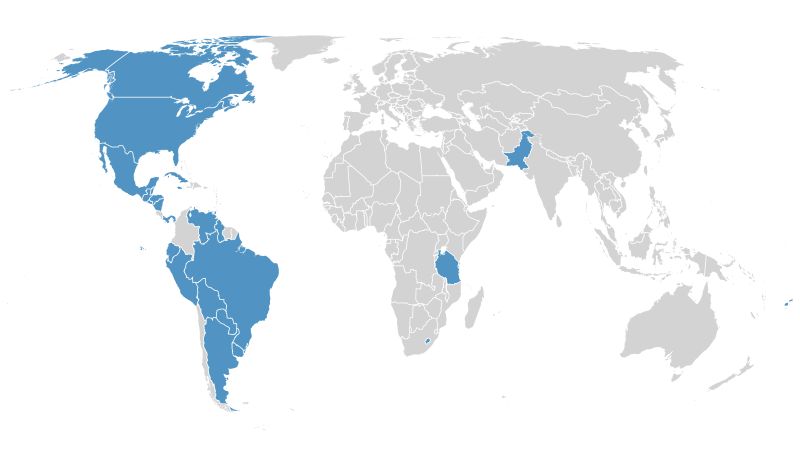CNN
—
President Donald Trump is seeking to end birthright citizenship in the US, a nearly 160-year-old practice guaranteed by the 14th Amendment of the Constitution, which grants citizenship to anyone born on American soil. But realizing this controversial order will be challenging as it is already facing major legal hurdles.
The US is among dozens of countries, mostly in the Americas, that grant unconditional birthright citizenship to anyone born in its territory under a legal principle known as jus soli, Latin for “right of the soil.”
Some other countries grant birthright citizenship with conditions. Spain, for example, requires at least one of the parents to also be born in the country. And Chile does not give citizenship to children born to foreigners who are staying temporarily.
The Trump administration’s argument for ending birthright citizenship relies on the clause “subject to the jurisdiction thereof” in the Constitution’s statement.
The administration claims that children born to undocumented immigrants, or to foreigners who are in the US legally but on temporary visas, are not “subject to the jurisdiction” of the US and therefore not citizens.
So far, Trump’s order has been met with legal pushback.
On Wednesday, a federal judge issued a nationwide preliminary injunction preventing its enforcement. This follows last month’s decision from another judge, who issued a temporary restraining order to block it, calling Trump’s order ‘blatantly unconstitutional’.
More than 20 states, mostly led by Democrats, have filed lawsuits in two different federal courts arguing that the president has no authority to change or override a constitutional amendment. Civil rights groups and expectant parents have brought similar legal action.
While Trump’s order — assuming it survives court challenges — would not strip citizenship from children already born in the US before it takes effect, its implementation would affect millions of migrants if they have children.
The US had around 22.9 million immigrants who were not naturalized citizens as of 2023 – including green card holders, those on temporary student or work visas and unauthorized migrants, according to data from the US Census Bureau. They make up nearly 7% of the whole population, and more than half were born in Latin America.
Further data shows trends that highlight the significant share of immigrants in US births. In 2023, 86% of children under 18 in immigrant families were US-born, according to the Migration Policy Institute. The number of such children has more than doubled over the past three decades.
From 2013 to 2024, an average of 860,000 babies were born to foreign-born mothers each year, according to data from the National Center for Health Statistics. While total births in the US have broadly declined over the past decade, the fall has been steeper among US-born mothers than foreign-born mothers.
The case against Trump’s order could ultimately reach the Supreme Court, which ruled in an 1898 landmark case that people born within US territory are citizens even if their parents are not.
Apart from being considered “unconstitutional,” multiple polls conducted last month find ending birthright citizenship for children born to illegal immigrants is unpopular with the public, with just below one-third expressing support in surveys from AP/NORC and Quinnipiac University.


